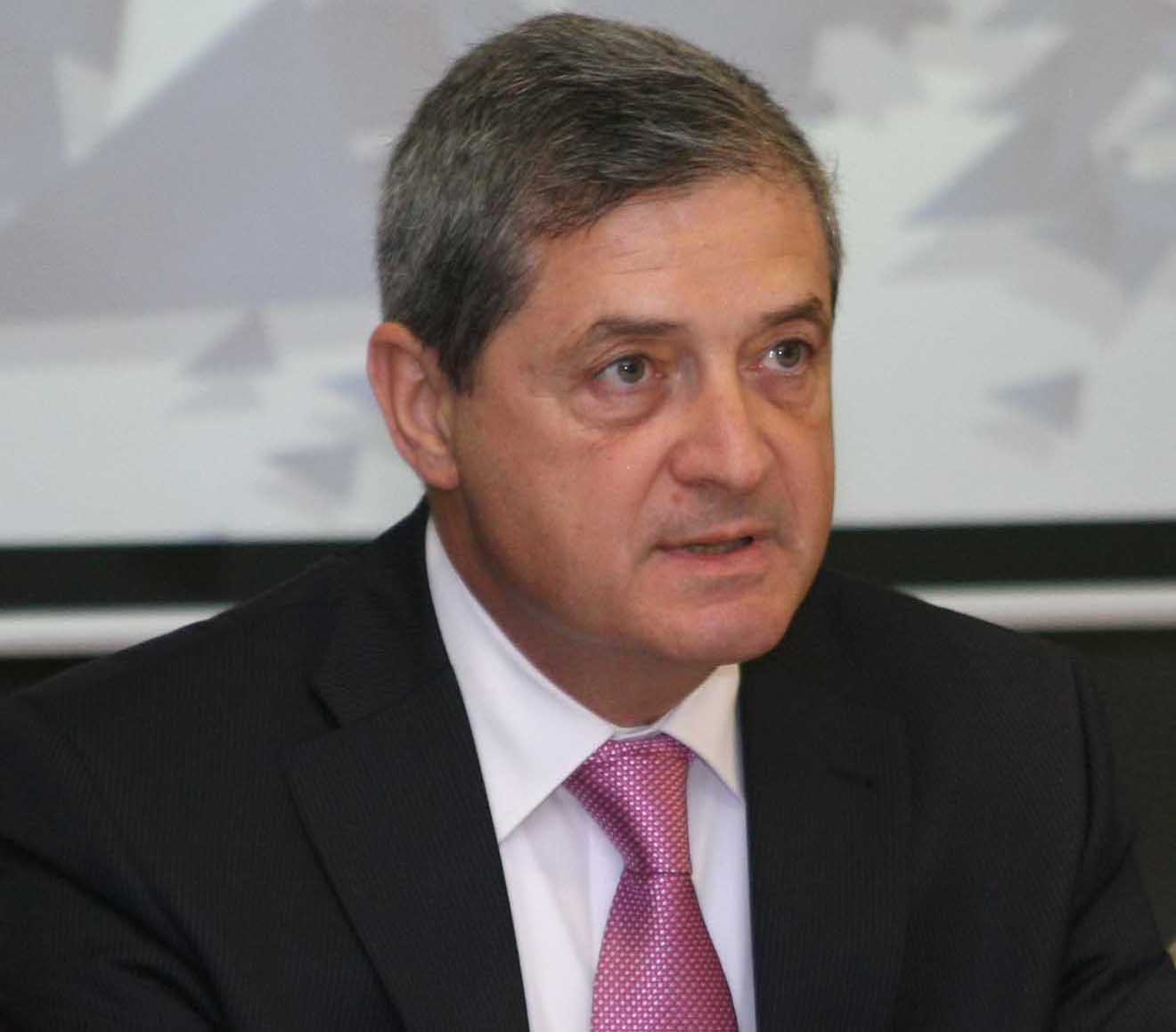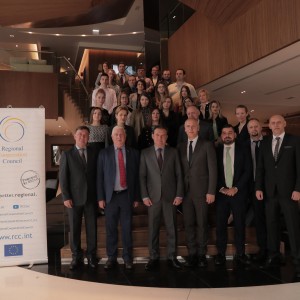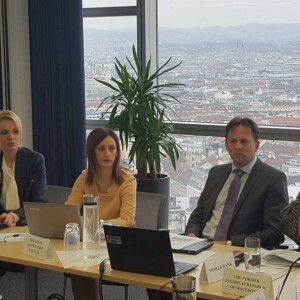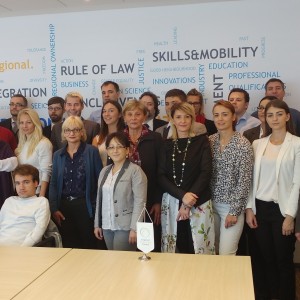SHARED PROBLEMS AND SHARED HOPES
07 April 2015

Gazmend Turdiu is Deputy RCC Secretary General and Head of RCC Programme Department. (Photo RCC/Zoran Kanlic)
In order to find the answers to these questions, our team “camped” out on the streets of Belgrade, Podgorica, Pristina, Sarajevo, Skopje and Tirana and talked with them. Regardless of where our conversation took place, we asked the same questions: about (un)employment, education and the education systems, the brain drain, what do they think about regional cooperation, how do they see about their future, both as individuals and as part of their communities.
Perhaps not surprisingly, the answers were very similar, mirroring the fact that the problems these people face are similar, irrespective of where they live and what language they speak. Actually, if the conversations we had with them were in a language other than those of the Western Balkans, English for example, and if the background didn’t include a city landmark, there was no way of knowing where we were - in Sarajevo, Belgrade, Skopje, Pristina, Tirana or Podgorica.
This was very encouraging for us in the RCC, because for almost a year and a half we have been dealing with those problems that the whole region suffers from: unemployment, poor infrastructure, inadequate and inappropriate public services, poor education and health systems… and so on and so forth. RCC’s South East Europe 2020 Strategy, our basic instrument for now and for another six years, aims precisely at addressing these main concerns of our peoples, keeping a special focus on economic growth and employment, as well as on the European perspectives for the whole region.
To achieve all of this, we shared our latest findings with the public at large and went again through the region. I participated personally in the roundtables we organised in Pristina, Podgorica and Tirana and for those roundtables we invited the representatives of governments, the civil society, academia and of course the media. The schedule for the meetings in these three cities was quite tight and, of course, we were trying to find the easiest, fastest and most cost efficient way to reach our destinations and make the best use of our time. Not surprisingly, we were repeatedly challenged by the lack of good connectivity in our region. We left Sarajevo, the headquarters of the RCC, at 15:05 and arrived in Tirana the next day at 00:45 a.m. It was a flight of more than nine and a half hours! It would have been no better had we used roads: it takes more than seven hours to drive from Sarajevo to Tirana (if one is lucky and has good weather, not much traffic, no queues at the border crossing points). Getting from Sarajevo to Podgorica and Pristina was no easier. These four cities are only a few hundred kilometres away from each-other but it takes so long to travel between them. This was just a poignant reminder of how much remains to be done to improve connectivity and the infrastructure that brings together our economies and our peoples.
What struck me at these meetings in Podgorica, Pristina and Tirana was that the participants were genuinely curious, wanting to know more about what their governments are doing to improve their life and how is the RCC helping. Above all - they wanted to see results. They are hopeful, but cautiously so. They have not lost faith in a better future. They dislike the present, but they do see the light at the end of the tunnel. I have also seen a common focus on real problems the people are facing as individuals, as members of their families and as members of their communities. They very much believe in the cooperation with their neighbours, the cooperation in the region and in European integration. They want their societies to be more open and to offer more opportunities.
Being an international organisation open to all participants from the region, the working language of our meetings was English. The RCC provided simultaneous translation into the local languages, so as to be able to reach everyone in the audience. Nevertheless, I noted that only a few people needed translation, while in one of the meetings the interpreters were redundant. No one was wearing headphones, everybody spoke English! Perhaps some might think this is a tiny and unimportant detail, but I don’t think so. It was a pleasure to see our people, particularly the young, being so well educated and in no need for help to communicate with the outside world. For me, this is an excellent example of their state of mind, their openness to the world and their preparedness to face the challenges of their lives.
Gazmend Turdiu




